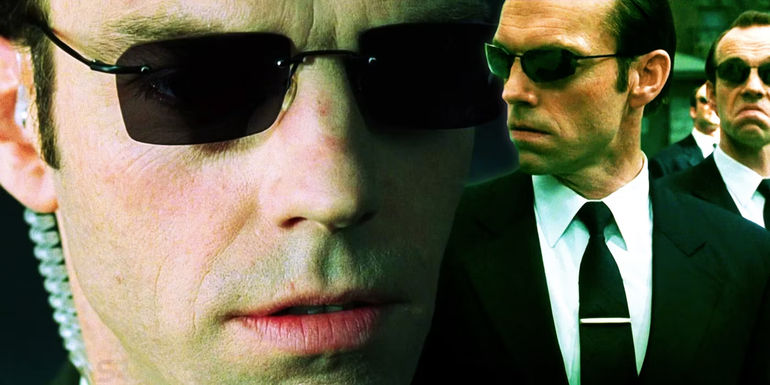
The Deeper Meaning of Agent Smith's Line in The Matrix Resurrections

Exploring the profound hidden message behind Agent Smith's cryptic comment in The Matrix Resurrections and its connection to the larger themes of the franchise.
The Philosophy of The Matrix Franchise
The Matrix movies have always been filled with dense symbolism, worldly philosophical diatribes, and ruminations on life, the universe, and existence. For an action-packed sci-fi series, The Matrix movies are surprisingly full of thoughtful meditations on the meaning of reality itself. In 2021’s long-awaited sequel The Matrix: Resurrections, the creators of the franchise doubled down on this approach with a self-referential reboot that questioned the idea of franchises, intellectual property, and continuing a story after the tale reached its logical end.
Jonathan Groff as Agent Smith in The Matrix Resurrections
To this end, The Matrix Resurrection’s controversial ending opted not to over-explain the complex storyline of the sequel. The reboot begins with Keanu Reeves reviving the role of Neo but, much like in the original movie, his character is seemingly unaware of his momentous title. This version of Neo is game designer Thomas Anderson, a seemingly ordinary developer who doesn’t realize that his successful game The Matrix is based on his life. Neo is awoken from his slumber and eventually understands his significance in the franchise's world when Trinity’s life is imperiled and he is called on to save her. Then Neo meets franchise villain Agent Smith, who delivers a cryptic existential line underscoring the franchise's deeper themes.
Hugo Weaving as Agent Smith in The Matrix and The Matrix Reloaded
Decoding Agent Smith's Cryptic Comment
Hugo Weaving’s original Agent Smith was one of the original Matrix trilogy’s primary villains, but, in The Matrix Resurrections, Jonathan Groff’s new version of the character unexpectedly saves Neo and Trinity. As he does so, The Matrix Resurrections’ Smith says, “You know the difference between us? Anyone could've been you, whereas I've always been anyone.” This cryptic comment might sound like word salad, but it hints at the conflict at the core of the franchise’s moral message. Smith means that Neo could have been anyone since anyone could potentially see through the facade of the Matrix and embrace their power by fighting the system. Later in The Matrix Resurrections, this proves to be true as viewers discover that Trinity is also the One. In contrast, Smith says that he has always been 'anyone' because Agents serve an entirely different function within the world of the series. Smith body-surfs into another person immediately after the comment, making it clear that he literally could be anyone within the simulation. The Matrix franchise’s Agents are capable of moving between bodies and using different hosts, but they don’t have the ability to transcend the system that the One possesses. Anyone could turn out to be the One, but lots of people are already secretly Agents.
Connecting Agent Smith's Lines to the Franchise's Themes
In a 2015 interview with Gizmodo, Lana Wachowski argued, “The whole point of the oneness, is that anybody could be Neo, but that everybody will be Smith.' Consequently, The Matrix franchise argues that, although everyone has the tools to deconstruct the facade presented to them as reality, society, culture, or objective fact, few individuals will make the risky decision to imagine a better world. Most, like Smith, will instead opt to become faceless automatons who act only in their own immediate interest, thus failing to break free from the simulation as Trinity and Neo do in the ending of The Matrix Resurrections.









